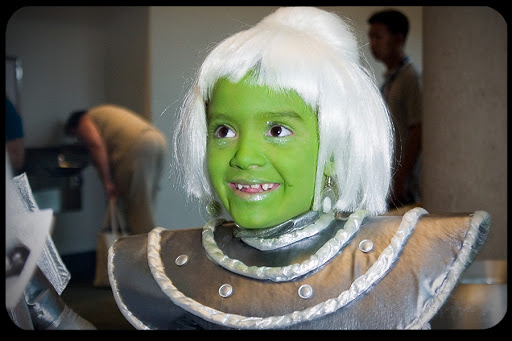Never have I had an intimate one-on-one relationship with an alien. If they don’t bother me, I won’t bother them. Besides, I would be very upset if one of them unannounced started messing with my REM sleep cycle.
I’m talking about the alien guys you find lurking around Area 51, swapping stories. They get featured on television reality shows, like Ancient Astronauts and UFO Hunters. As with all reality shows, things are hardly ever real and besides, who lives like that, anyway?
But real extraterrestrials, the ones we never hear from, I don’t mess with them either, not anymore. Not because I’m not interested; once I was quite fond of them. But after them snubbing me for all these years they’ve become more of a laid-aside hobby than a quest. Sadly, I doubt there are any authentic not-of-earth intelligences that look up into the sky and wonder if we exist. That’s pretty much because the weight of evidence, as I read it, means they don’t exist. And if they do, but haven’t been in touch with us, that’s a separate problem. We’re all hanging around, waiting for a blind date that never shows, and doesn’t even phone with an excuse. Rude, is what it is.
It was Carl Sagan’s Cosmos series that first fixed me on aliens. Sagan had this marvelous notion of an Encyclopaedia Galactica, a depository of intergalactic information. It envisioned extraterrestrial civilizations sharing their stories, organic chemistries and, a gesture of touching trust, revealing the locations of their home planets.
This was my go-to television series from November 1980 to its conclusion that December. Under Sagan’s lash—and, okay, Star Trek’s—I once memorized the Drake Equation. Even before Cosmos, I read his 1966 Intelligent Life in the Universe (co-authored with Russian astrophysicist Iosif Shklovsky). He spent a chapter discussing “paleocontact” between humans and aliens visiting earth. He speculated later that he had inadvertently set off the entire chariots of the gods gobbledygook. Thanks, Carl.
Pope Francis hasn’t been of much help lately, either. “If tomorrow,” he speculated a year ago, “an expedition of aliens from Mars arrives and one of the green ones with long nose and big ears, like those which children draw, comes and says, ‘I want a Baptism!’ What would happen?”
Very little, probably, due to the distinct possibility that when it comes to galactic intelligence, we’re all there is. Tweak the Drake Equation one way—and perhaps the only way—it all comes down to us, lonely us. The chance of us being here, now, is so incredibly small it makes the absence of extraterrestrial intelligence even more likely. The excuses made for E.T.’s Great Silence are wearing thin.
So why bring it up it? Pope Francis posed the question to assert God’s openness to all humanity, asserting a radical love for human beings that should be found as well within the Church. Using an alien, he exaggerated for effect. And it was not the first time theologians have wondered about it, and the wonder is always in relationship to God’s relationship to human beings.
That is pretty much the way we always think of aliens, in science and in science fiction. Without actually encountering one, they inevitably become our own projection of us. We are always searching for hints of ourselves, of what human is, and we find “us” lodged somewhere within the Other.
That is how things are handled in Would You Baptize an Extraterrestrial?, written by two scientists at the Vatican Observatory, Br. Guy Consolmagno, SJ, and Fr. Paul R. Mueller, SJ. It’s a breezy book, but don’t let that fool you. They grapple with big subjects; all framed as “questions from the astronomer’s in-box at the Vatican Observatory,” so the subtitle has it. They range over the landscape of science and faith: Genesis and the Big Bang (and the bearing art has on a discussion of both), Galileo and the Vatican (like Wagner’s music, it’s not as bad as it sounds), what was the Christmas Star of Bethlehem (whatever, it “beats looking at a glowing Santa”), the heat death of the universe, and in the last chapter, aliens.
When it comes to baptizing an alien, there’s them and there’s us. If it is only us, then the alien lets us examine the depths of God’s inclusivity and his exclusive love for all individual human beings, in much the same way as the pope.
But if an authentic flesh and green-blooded alien shows up, then the focus shifts necessarily from us to the alien. Then we ask what is asked of each of us: What are his beliefs, his desires; what is his declared need for baptism?
In Michael Flynn’s novel Eifelhem, aliens, looking very much like five-foot ten-inch grasshoppers, find themselves stranded in plague-ridden 14th century Germany. More than a few of them are engrossed by human behavior, shaped by faith and displaying an elemental kindness. This was an experience, well, alien to their own society. They seek out the priest for baptism.
They become the alien “us” we seek, confirming the better qualities of human life with which we flatter ourselves. The pope’s Martian becomes the foil against our inclination to self-centeredness when confronted with the unbounded love of God that can bridge even light years.
Russell E. Saltzman is a web columnist for First Things magazine whose latest book is Speaking of the Dead. He lives in Kansas City, Missouri and can be reached at russell.e.saltzman@gmail.com.

